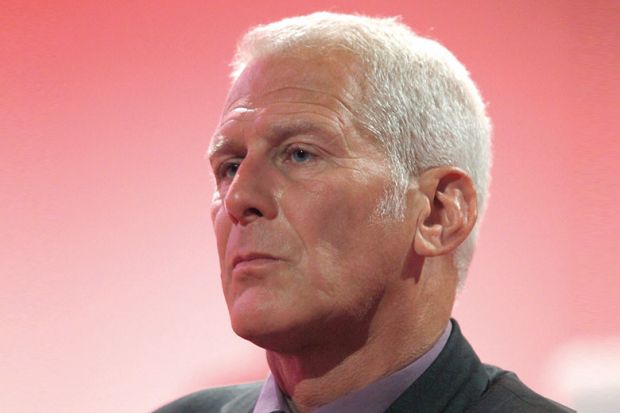Many in higher education might breath a sigh of relief, because although Andrew Adonis has been spotted on the fringes of this year's Labour Party Conference in Brighton, he's not saying much about universities or vice-chancellors. Instead, he's returned to themes of high-speed railways, infrastructure and high politics. Although he may just not have been invited by the various HE organisation running events, dinners and meetings this year.
The National Union of Students, the University and College Union, MillionPlus, the University Alliance, GuildHE and the Higher Education Policy Institute have all run events – and of course there's been a fair bit of HE on the main conference platform too, keeping shadow higher education minister Gordon Marsden, and shadow minister for industrial strategy, science and innovation Chi Onwurah (as well as shadow chancellor John McDonnell and Labour leader Jeremy Corbyn) reasonably busy.
But the headlines are about tuition fees and student debt, rather than v-c pay and – in that sense at least – this conference picks up directly from the general election and Labour's manifesto.
Given the short amount of time that has passed, it was highly unlikely that Labour's broad brush narrative would have developed very much. Essentially, the manifesto commitment to abolish fees is more than enough to get Labour through conference season and keep them on a perpetual campaign footing. They did well in the election (even though they still lost), so they're happy to keep fighting it.
Other manifesto issues are getting some, albeit less, air time. On the fringe there is some thoughtful discussion about further education and technical education, as well as science and research, from the very busy Marsden and Onwurah. Both are happy to talk about the lesser headlines of a National Education Service, free lifelong learning, regional economies and the commitment to spend 3 per cent of GDP on research.
But perhaps the biggest single difference between this year and last is that more people are turning up to ask about the details. Everyone in the sector would like more detail – from the NUS and the UCU to university groups and learned societies – and they naturally have suggestions for what that detail might be. However, not only is that absent, it remains a long, long way below the headline promises that the Labour faithful love to hear and that are continuing to driving both Labour and Conservative politics.
No matter then that some of the claims about level and overall volume of debt and the subsequent impact on working-class applicants, students and graduates have been questioned by, among others, the Institute for Fiscal Studies and BBC Radio 4's More or Less.
Even John McDonnell's big speech yesterday fluffed some of the detailed numbers, according to a fact check by Channel 4. But no one really cared very much. Even the cost of scrapping debt – he put it at £10 billion each year – didn't seem that big, given he'd just promised to end PFI; nationalise railways, water, electricity and Royal Mail; build HS2 to Scotland, Crossrail for the North; and electrification for every train line everywhere else.
The shadow chancellor is just as keen on industrial strategy as one of the ways (alongside higher taxes and closed loopholes) that he will pay for all of Labour's commitments. He particularly likes the "white heat" of technological change and the "fourth industrial revolution" (although at least three of these are still going badly for the workers).
McDonnell – one of the very few allowed to go into any detailed political positioning – also suggested that Labour might vote with any proposed reduction in tuition fees, interest rates or increased repayment thresholds mooted recently in The Sunday Times and firmly on the mind of his opposite number, Philip Hammond. But this support would only be as a staging post toward abolishing fees altogether.
The question asked but not yet answered is what it is that the shadow chancellor and the leader of the opposition want to be free? What kind of education will students get for nothing? In other words, what will a Labour government fund, through what mechanisms and at what level? Or what will "free" really be "worth"?
As John McDonnell said during one passage in his speech: "We say to the universities – help is on the way." For now at least, that may not be very reassuring.
Andy Westwood is professor of government practice at the University of Manchester.
Register to continue
Why register?
- Registration is free and only takes a moment
- Once registered, you can read 3 articles a month
- Sign up for our newsletter
Subscribe
Or subscribe for unlimited access to:
- Unlimited access to news, views, insights & reviews
- Digital editions
- Digital access to THE’s university and college rankings analysis
Already registered or a current subscriber? Login







